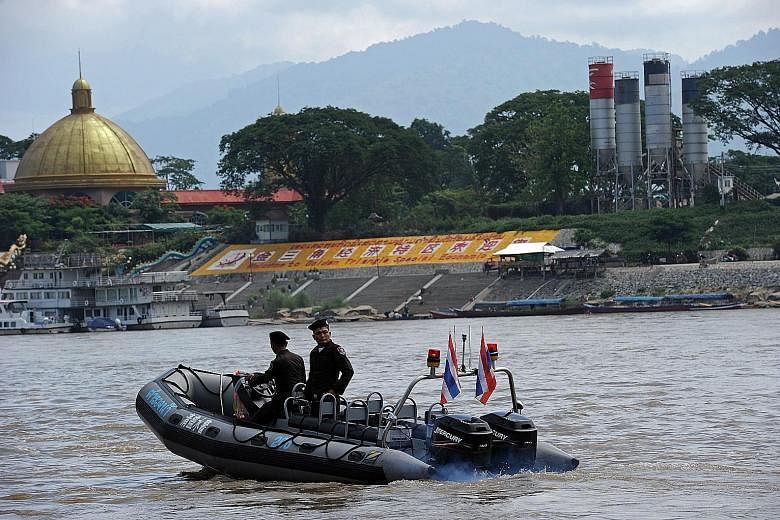The Thai government's recent backing of a longstanding plan to make the Mekong River passable for larger cargo boats has raised fears for the future of the world's largest inland fishery.
Thailand's military government last month approved studies on how the river - which meanders almost 5,000km through China, Myanmar, Thailand, Laos, Cambodia and Vietnam before reaching the sea - could be developed to allow the safe navigation of ships carrying up to 500,000kg of cargo.
The decision comes 17 years after China, Laos, Myanmar and Thailand signed an agreement to open the river for commercial navigation, and to cooperate in maintaining and improving the navigability of the waterway. The idea was to facilitate the flow of cargo ships among these countries, from China's Yunnan province to Luang Prabang in Laos.
Since then, the Chinese government has spent millions of dollars clearing rocks and reefs and installing navigation aids upstream. But a bottleneck exists in a 1.6km section of the river called Khon Pi Luang which forms the Thai-Lao border.
During the dry season in March and April, when the water recedes, the section is dotted with reefs and rapids, making it passable only to slim vessels captained by experienced boatmen.
The islets, however, are important fish breeding grounds. Fears that blasting away the rocks would affect the borderline between Thailand and Laos have also stalled clearance plans - until now.
Thais in the northern Chiang Rai province say they were particularly alarmed when surveyors from China turned up there last month to talk to activists opposed to rock clearance.
"They came to explain the trade and investment benefits this project would bring and how people in Thailand and Laos would benefit from it," Mr Niwat Roikeaw, a Chiang Rai-based environmental activist, told The Straits Times.
"I told them I understood that benefit, but they also needed to know the devastation that would bring to the people along the river as a result," he said.
According to the Xinhua news agency, since 2001 over four billion kilograms of cargo worth more than US$4.6 billion (S$6.5 billion) has been transported along the river, which Chinese media have referred to as the "golden waterway".
Last month, Mr Kobsak Pootrakool, a vice-minister in Thailand's prime minister's office, was quoted by the Thai News Agency as saying Thailand would benefit from trade expansion along the river.
But environmentalists fear this latest project could create irreversible damage to the river ecosystem, given how the lower Mekong River provides spawning grounds for a large and diverse fish population.
"This rich Mekong River would then turn into a dead canal," warned International Rivers' Thailand coordinator Pianporn Deetes.
China, which has been steadily cementing links to mainland South- east Asia through road and rail, is expected to benefit from the expanded markets for industrial and agricultural commodities from Yunnan once the Mekong is accessible to cargo ships all year around.
But it has been accused of riding roughshod over the interests of its downstream neighbours, particularly in its management of its six hydropower dams upstream. Fishing communities say water levels are unusually high during the dry season and unusually low during rainy season, upsetting natural ecological cycles.

